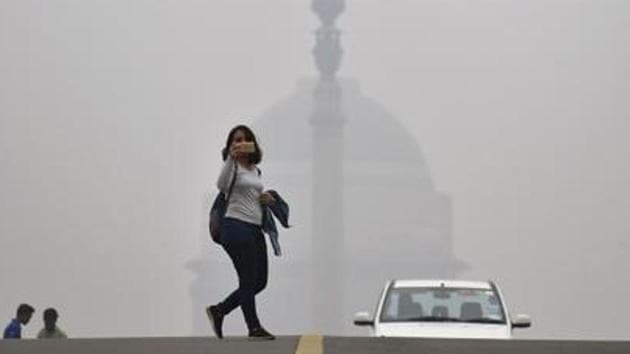Designing a blueprint for clean air
Strengthen the legislative mandate, and suitably enhance the institutional capacity to discharge it
North India’s air pollution problem is predictably bad. After the October-November spike driven in part (but only in part) by crop burning, we have the December second, somewhat lower, spike driven (again in part) by biomass burning and the trapping of smog by cold air. December should remind us that we need to pay attention to air pollution all year round.

There are those that argue for dramatic institutional change: Empower an air pollution czar at the Prime Minister’s Office, create a new agency, and so on. These silver bullet solutions are unlikely to work. We cannot wish away the fact that limiting air pollution creates winners and losers, and that losers will justifiably protest. Nor can we ignore India’s weak implementation and enforcement capacity, and the sheer scale and scope of the problem. To rise to the challenge, we need to build a long-term institutional machinery explicitly designed to address this complex problem. This machinery needs to be multi-pronged to address all the sources, not just those that grab headlines, and have enhanced capacities for sustained implementation rather than knee-jerk reactions.
Fortunately, there are signs that public and political attention to the air pollution problem is rising, and may be able to power such sustained action. A recent Lokniti-CSDS survey suggests that air quality is one of the most pressing issues in the minds of Delhi voters. Politicians are beginning to listen. This winter, Parliament witnessed 12 hours of discussion on air pollution. A private member’s bill tabled in the Rajya Sabha aims to provide every citizen with a right to breathe clean air. Another bill being discussed will shift the focus of the Air (Prevention and Control of Pollution) Act, 1981, to public health impacts of air pollution, and urge transparency in, and accountability of, regulators.
How do we harness this welcome attention and focus on action? Two crucial ingredients are strengthening the legislative mandate, and significantly enhancing the institutional capacity to discharge this mandate.
A good starting point is to amend the air Act to introduce three changes.
First, enable enforcement proceedings to be based on emerging sources of data on emissions, like Continuous Emission Monitoring Systems, instead of manual inspections alone, as is currently the case. This seemingly arcane issue is fundamental to the enforcement challenge. Right now, legal action against polluters requires data from a physical sample that is easily cheated by adjusting the timing of emissions or dodging inspectors. Enabling our regulators with modern technology would dramatically increase the potential for credible enforcement.
Second, to realise the full benefits of enforcement data, the enforcement toolbox of the State Pollution Control Boards (SPCBs) needs to be strengthened. Currently, they can only rely on criminal prosecution, which is expensive and time-consuming, or shutting down operations, which hurts labour, and understandably leads to political blowback. Instead, our regulators should statutorily be empowered to escalate regulatory action in an incremental fashion, for example by tools such as forfeiture of bank guarantees deposited by regulated entities and charging environmental compensation for environmental damage.
Third, legislative action can enhance the will to use these tools, by strengthening the internal governance of the SPCBs. Instead of being packed with government officials and potential polluters such as municipal corporations, the governing board should also include voices representing air pollution victims, such as independent experts, civil society representatives, and health professionals. Moreover, the minimum statutory qualifications for the chairpersons and member secretaries should be enhanced to reflect the nature of duties and scale of problems.
Since laws are only as strong as the agencies that implement them, the SPCBs themselves need institutional strengthening.
First, all SPCBs should fill existing vacancies with competent staff, and assess the adequacy of their current sanctioned strength and its expertise. To put this in perspective, Punjab and Haryana PCBs have about 30% vacancies.
Second, measures should be put in place to deter state governments from interfering in SPCB functioning. For instance, the SPCBs should have financial autonomy and their leadership should have a fixed tenure free of unreasonable transfer orders. Finally, SPCBs have substantial unused powers, such as laying down standards for new sources of pollution and pollutants in consultation with the Central Pollution Control Board. Here, civil society knowledge and pressure can be important in encouraging a more proactive approach.
While SPCBs are the frontline regulators for pollution control, the larger ecosystem of institutions within which they function also needs strengthening, and systems of coordination across agencies need to be enhanced. For instance, vehicular emissions are governed primarily by the transport department and traffic police, while dust and waste management are under the municipal corporations.
Air pollution is an urgent problem. But urgency should not translate to haste or a search for ineffective silver bullets. There are well-known, and problematic, bottlenecks in the way of improved air quality. Concrete legislative and institutional changes are necessary to release these bottlenecks. We should harness the upsurge in public and political interest to make these changes.






